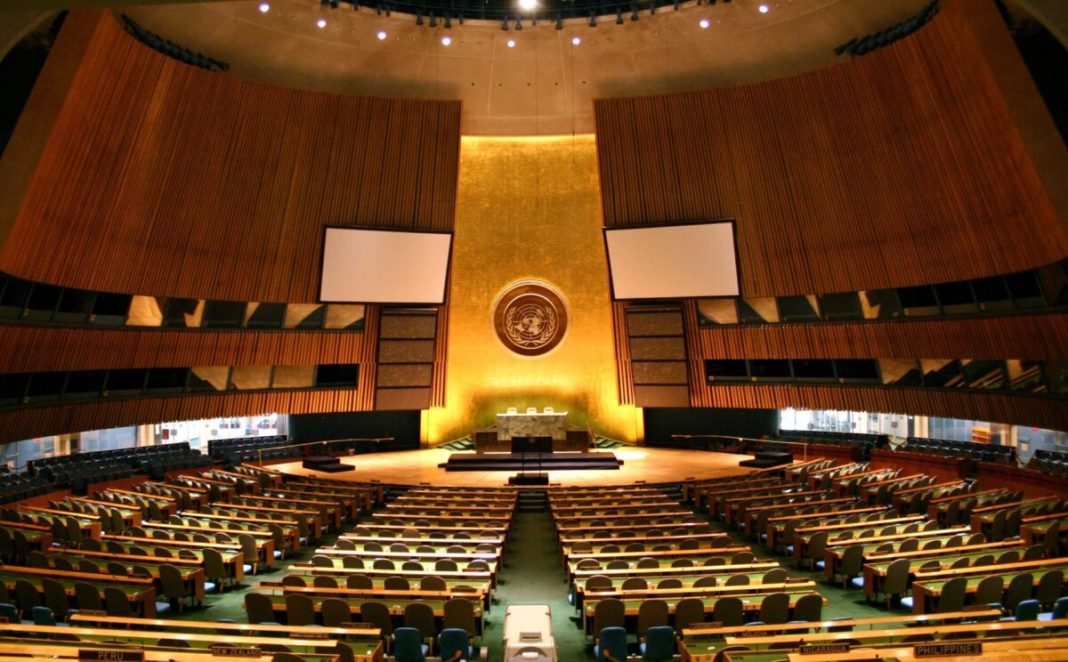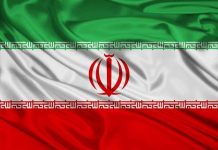NEW YORK: Pakistan has told UN General Assembly that the ongoing Israeli war in Gaza has exposed the Security Council’s failure to effectively address conflicts because of divisions among its five permanent members, and said that creating more permanent seats could completely bog down the 15-member body.
“It is now more evident than ever, especially after the Gaza conflict that the primary reason for the Security Council’s frequent failure to respond effectively to conflicts and threats to peace and security is the inability of its permanent members to agree on decisive action,”Ambassador Munir Akram said in the 193-member Assembly’s annual debate on how to reform the Security Council.
In this regard, the Pakistani envoy said that adding new permanent members in an enlarged Council would statistically multiply the prospects of its paralysis.
“The problem cannot be the solution,” Ambassador Akram added.
Like many other member states, he said, Pakistan remains “staunchly” opposed to any proposals for the creation of additional permanent seats for individual member states — obviously referring to the intense campaign by India, Brazil, Germany and Japan — known as G-4 — for permanent membership.
There was no justification for the creation of ‘new centres of privilege’ within the UN, Ambassador said, adding, “Any country seeking a more frequent presence on the Security Council should do so by subjecting itself to the democratic process of periodic election by the General Assembly.”
The Intergovernmental Negotiations (IGN) on Security Council reform began in February 2009 aimed at making the UN more effective, representative and accountable, but they have remained stalled. The IGN process deals with five key areas — the categories of membership, the question of veto, regional representation, size of an enlarged Security Council, and working methods of the council and its relationship with the General Assembly.
Despite a general agreement on enlarging the Council, as part of the UN reform process, member states remain divided over the details.
The so-called G-4, who seek for themselves permanent seats on the Council, have shown no flexibility in their campaign for expanding the Council by 10 seats, with six additional permanent and four non-permanent members. On the other hand, the Italy/Pakistan-led Uniting for Consensus (UfC) group, which firmly opposes additional permanent members, has proposed a new category of members — not permanent members — with longer duration in terms and a possibility to get re-elected.
The Security Council is currently composed of five permanent members — Britain, China, France, Russia and the United States — and 10 non-permanent members elected to serve for two years.
In his remarks, Ambassador Akram noted that the convergences had broadened during discussions in the current Assembly session while divergences narrowed in the five key inter-linked “clusters”.
However, he added, wide divergences remained on several key issues within each “cluster”.
The Pakistani envoy said there was a convergence on the expansion of 2-year non-permanent seats, but no convergence on the creation of new permanent members. These discussions involved not just two but several categories of membership: 2-year non-permanent seats; longer-term non-permanent seats. re-electable non-permanent seats; permanent seats representing regions; permanent membership with or without a veto.
Similarly, he said, there were proposals on the prohibition of the veto; its restriction, suspension or expansion (to new permanent members) and also its deferment.
Also, Ambassador Akram said, there was an emerging consensus that the regional approach offers the best prospect for agreement on Security Council reform,
On regional representation, he said, the “historic injustice” against Africa, as well as Asia, Latin America, SIDS (Small Island Developing countries) and the Arab Group and OIC (Organization of Islamic Cooperation) must be redressed, and the unequal advantage accorded to Europe rectified.
The UfC’s proposal to add 11-12 new non-permanent members would offer greater representation to the vast majority of small and medium States, 59 of which have never served on the Security Council, he said. Besides ensuring “equitable geopolitical” representation, a larger number of non-permanent members could balance the inordinate influence of the 5 permanent members and ensure accountability and promote democratization of the Council.
On the other hand, the Pakistani envoy argued the addition of 4 or 6 new “permanent members” would statistically reduce the prospects for representation for the rest of the 182 member States and expand the circle of the unaccountable in the Security Council.
The African demand for two permanent seats was different from the quest of “4 individual States” (G-4) for permanent membership, as they would be filled by States selected by Africa and “accountable” to Africa and could be replaced by Africa, Ambassador Akram explained. The “four individual aspirants” would be accountable to no one and seek to advance their own national interests and ambitions.
“In any case,” he added, “in our multi-polar world, there are more than 4 or 6 States – over 20 – which can, based on their size, defence capability, economic status, peacekeeping role and contributions to peace and security, claim the mantle of more frequent representation on the Security Council.
“The UfC’s offer for longer-term seats, and equitable regional representation, could accommodate the role of these ‘middle powers’ equitably.”
The Pact for the Future, which the world leaders adopted in September, had endorsed early reform, but no artificial deadline, the Pakistan envoy pointed out.
Any effort to impose a unilateral decision, through a voting process, will be divisive– not only destroying the IGN process – which some seem to desire – but also destroy the prospects of early agreement on Security Council reform.
“Neither the Arab Group nor the OIC Member States will accept a reform in which they are not equitable represented.,” Ambassador Akram said, adding, “We are convinced that the UfC’s proposal can serve as a framework for such an inclusive and equitable reform of the Council.”
Most other speakers called for reforms to the Security Council’s constitution, representation and veto use, urging a renewed commitment to the Pact for the Future, which itself should serve as a springboard to achieve these aims.
“We meet at a time when calls for the reform of the Security Council are growing louder and more frequent,” said Cherdchai Chaivaivid, General Assembly’ Vice-President, speaking for Philemon Yang, its President. –Agencies




